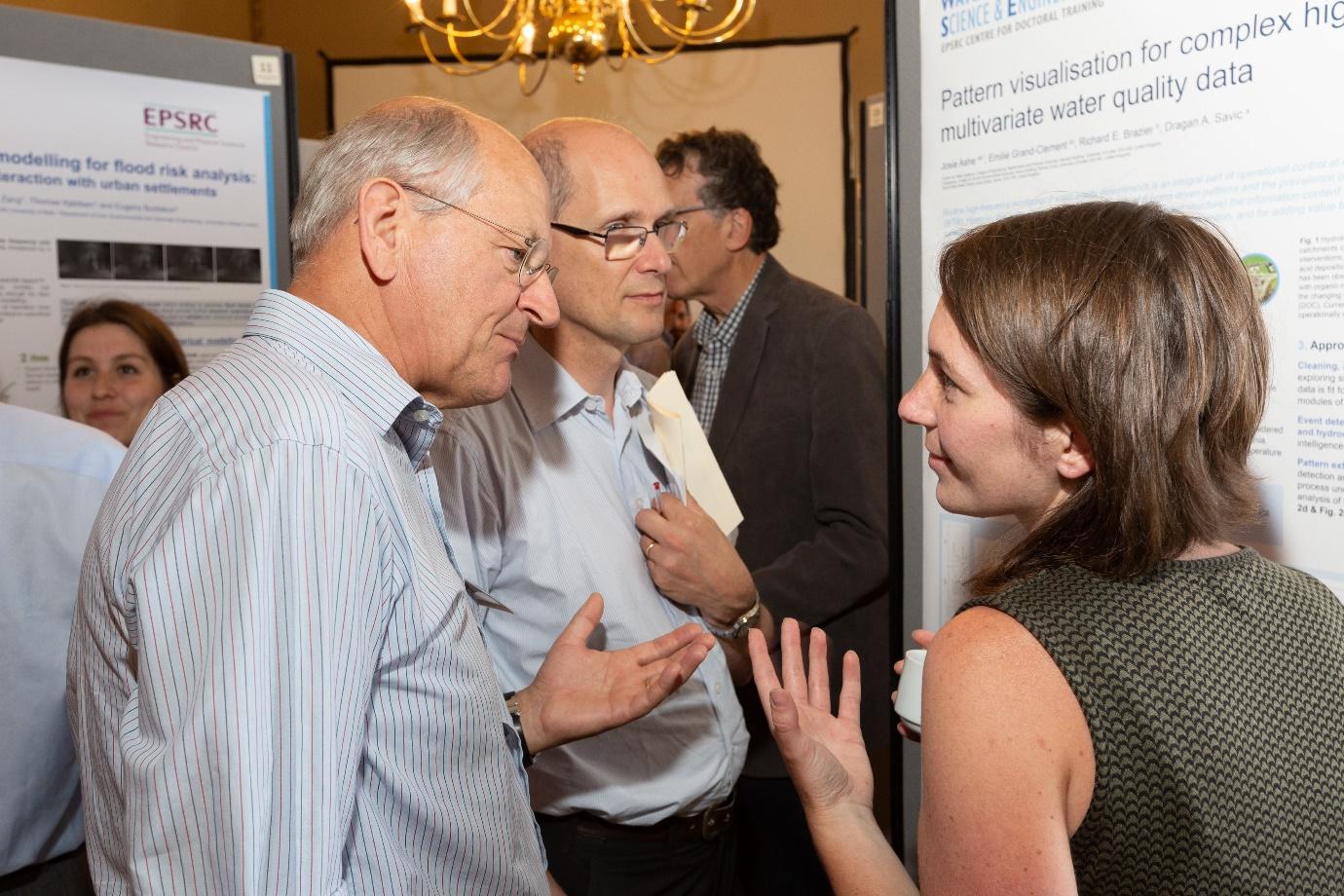This year the WISE CDT Summer School ran from 18th to 22nd June, and was organised by WIRC@Bath at Orchardleigh House, near Frome. We had the magnificent Victorian country house to ourselves for the whole week, which provided an opportunity for cohort building (Cohorts 3 and 4 were residential), a week-long Team Challenge, site visits, visiting lectures, and a Poster Session involving all of the WISE CDT students and judged by the Stakeholder Advisory Board. The Team Challenge was to come up with a proposition for a “Water Utility for the Future”, together with evidence-based justifications of the resulting water efficiencies and sustainability, and some indication of the business model.
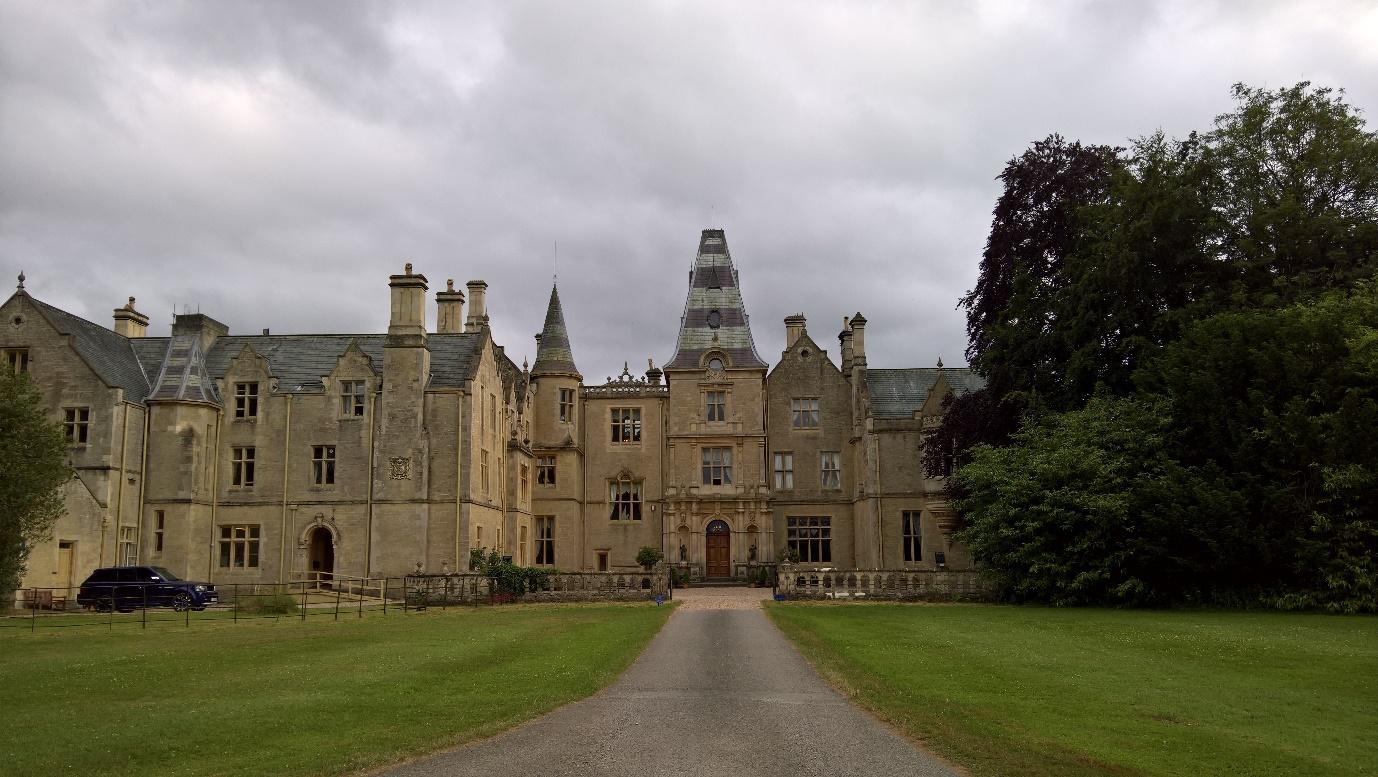
Invited Talks
We were delighted to welcome Trevor Bishop, Director of Strategy and Planning at Ofwat, who gave a talk on “Passing the Parcel: Challenges for the 21st and 22nd Century”. This was a very comprehensive overview of the challenges facing the UK water sector and set things up nicely for the Team Challenge.
Kees van Leeuwen, Principal Scientist at KWR in the Netherlands gave a very stimulating talk on “City Blueprinting”, which highlighted the need to include water resources and their management within city planning and evaluation.
“A water world……without boundaries” was a talk given by Michael Norton, Visiting Senior Industrial Fellow in WIRC@Bath. Michael spoke about his career in water, the challenges and opportunities, and several case studies where his involvement has brought clean water and sanitation to people who did not previously have it.
Ruth Barden, Director of Environmental Strategy at Wessex Water, gave a very engaging talk on “The Wessex Water Cycle: challenges and research” – this highlighted the challenges faced by a water utility in the UK and the approaches to collaborative research that the company takes to try and solve these.
Site Visits
On Tuesday 19th June we spent the day visiting two of Wessex Water’s sites. First, we went to Sutton Bingham for a guided tour of the reservoir and the water treatment works.
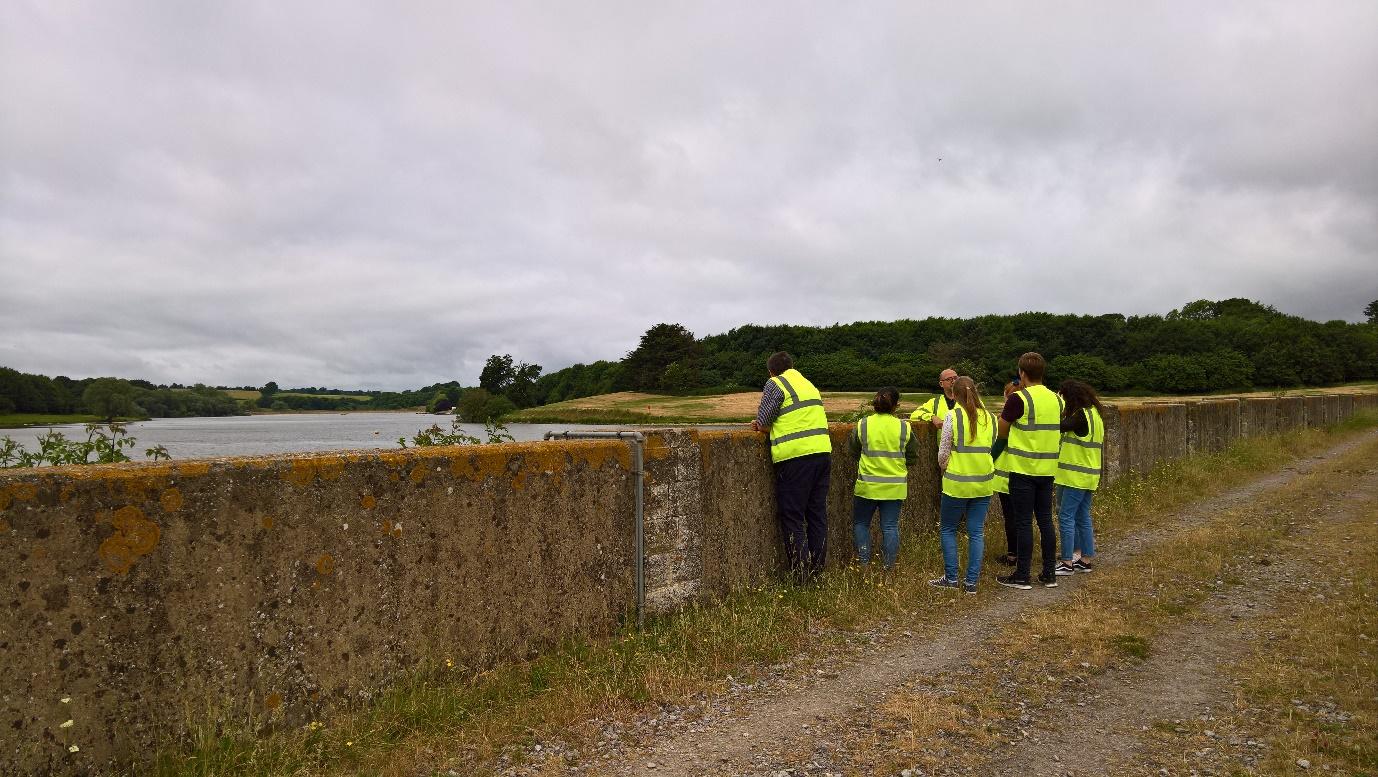
We were guided by four Process Scientists who had taken time out of their busy schedules to give us a guided technical tour of the site, from source to delivery to the water supply network. Apart from delivery of local water supply, the reservoir supports fishing and sailing, and the local area provides a home to many plants, bug, butterfly, bat and bird species, thereby preserving biodiversity.
In 2014, Wessex Water completed a £13m upgrade of the water treatment works, to improve treated water quality in the face of increasing algal blooms in the reservoir, the increasing presence of pesticides, and in relation to taste and odour problems. The upgraded works fully meets the treatment standards of the Drinking Water Inspectorate. PhD student Zara Visanji said, “It was really interesting getting a guided tour from the starting reservoir to the process control suite in the building. I have only ever visited wastewater treatment plants, so it was interesting to see the other side, and see all the different stages of treatment.”
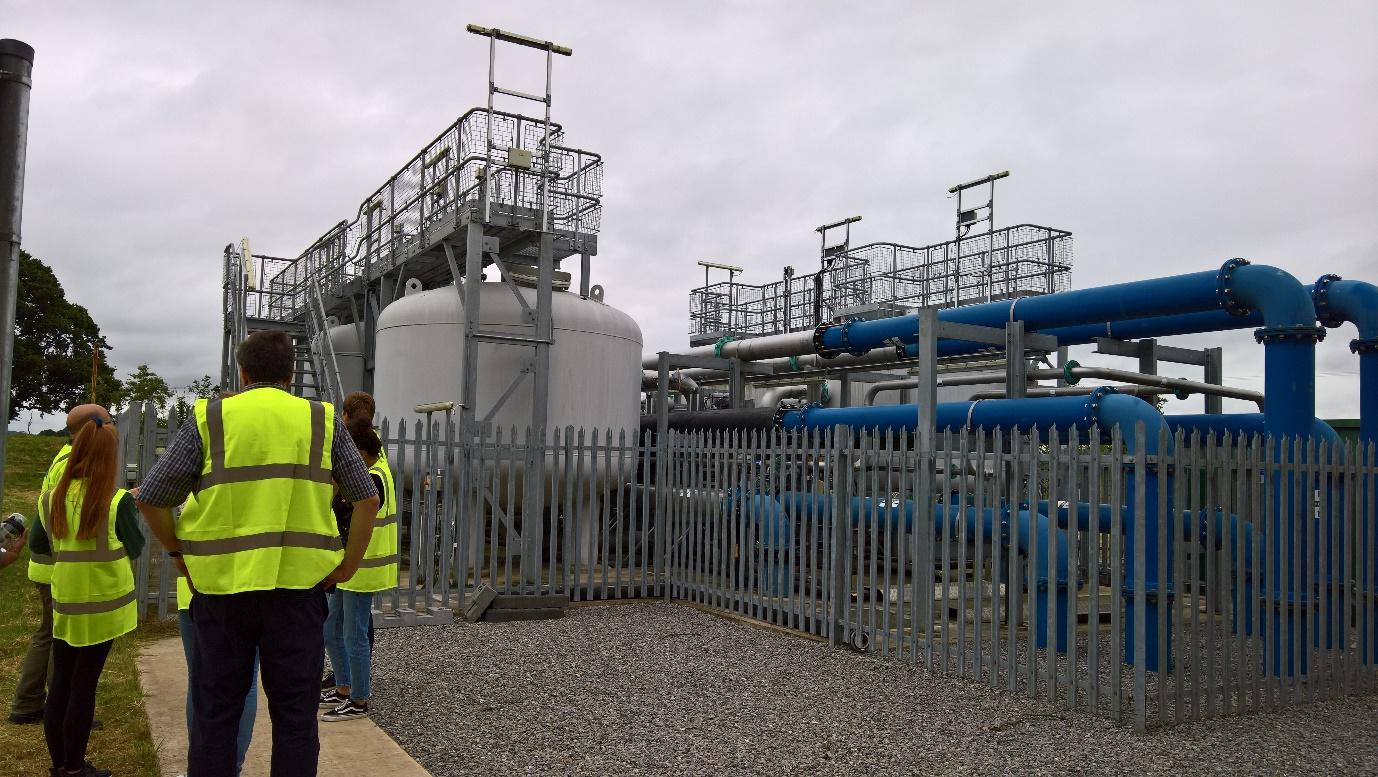
The second part of the site visit brought us back to Frome, where we toured the Waste Water Treatment Works. By contrast with the water supply site, this is one of the oldest installations across the Wessex Water region, with the first constructions being around 100 years old. The site is based around trickling filters, which are a simple biological process for breaking down and removing pollutants from water. It was a nice surprise that we were shown around the site by Jack Crassweller, a graduate from the Dept of Chemical Engineering at Bath.
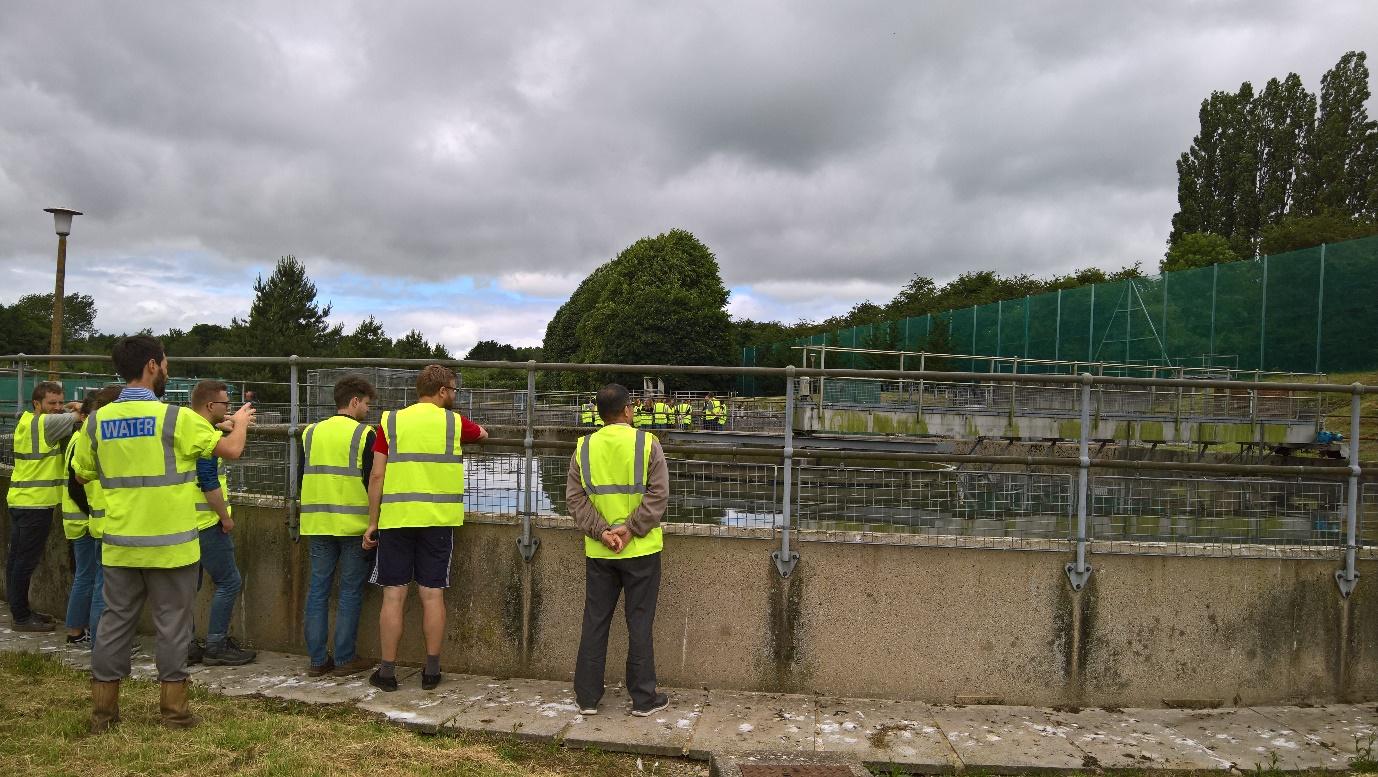
It is interesting to note the significant difference in the levels of investment between the water supply works and the waste water treatment site. This balance will shift soon, with increasing emphasis on nutrients and emerging pollutants and the need for their removal.
Poster Session
There was lots of discussion during a busy poster session, with Cohorts 1 and 2 joining us for the day. Prizes were awarded for the best poster presentation in each cohort, and these were: Cohort 1: Josh Myrans; Cohort 2: Maria Xenochristou; Cohort 3: Dolorez Gonzales & Cohort 4: Stephanie Müller.
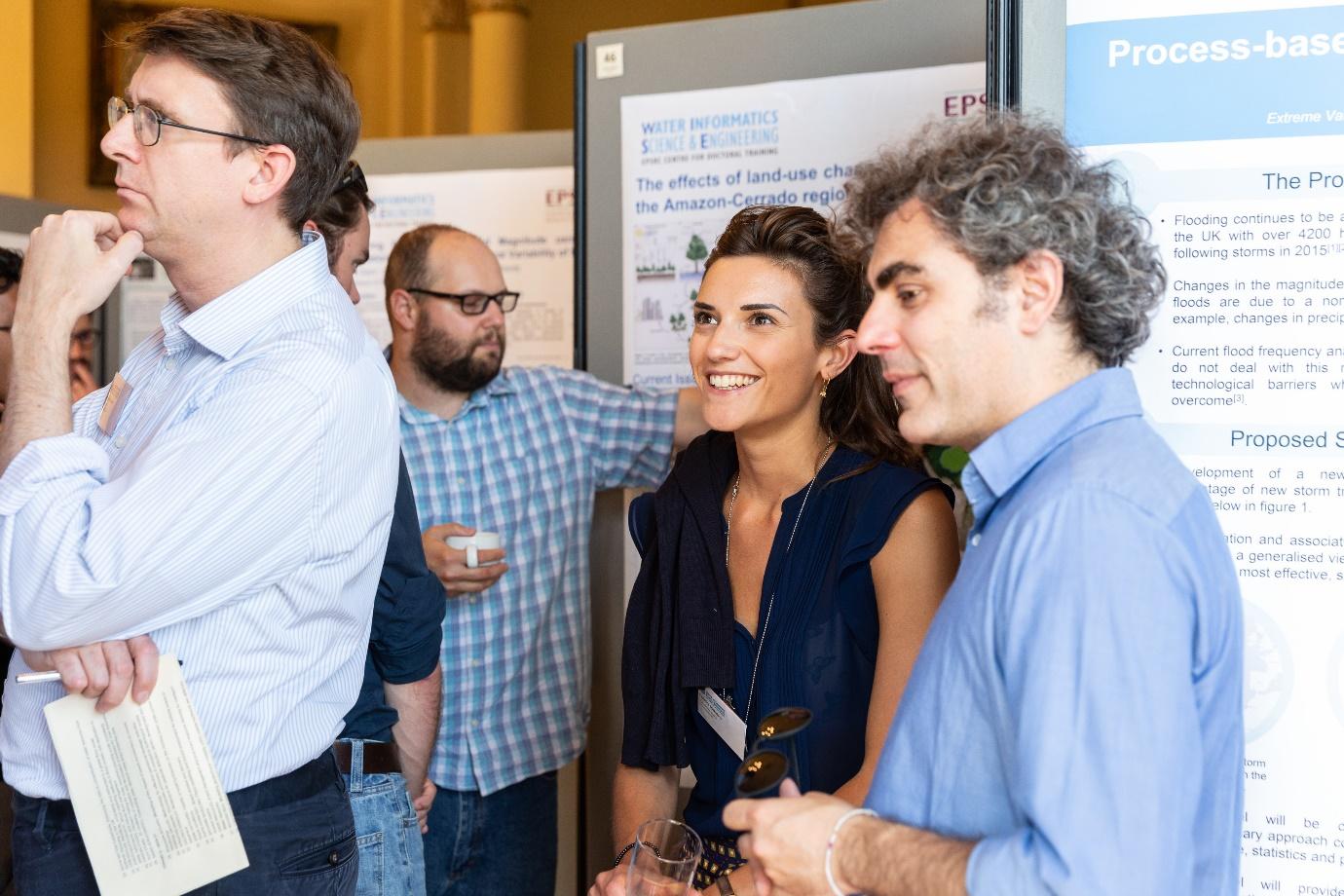
Team Challenge
For this year’s “Challenge”, students were asked to develop a new business plan for a water utility company that leads to a significant reduction of water abstraction from resources and increase in water efficiency in the UK by 2050. Each group was reviewed by panel of 5 judges and were marked according to their originality, innovation, practicality and presentation skills. The award was presented by Professor David Butler to the winning team, which consisted of Lina Stein, Zara Visanji, Nefeli Makrygianni, Paula Vicente and David Birt. Their water company was named “Wiser Water” and their mission was to provide clean and safe water for all their customers now and in the future and aim for water security.
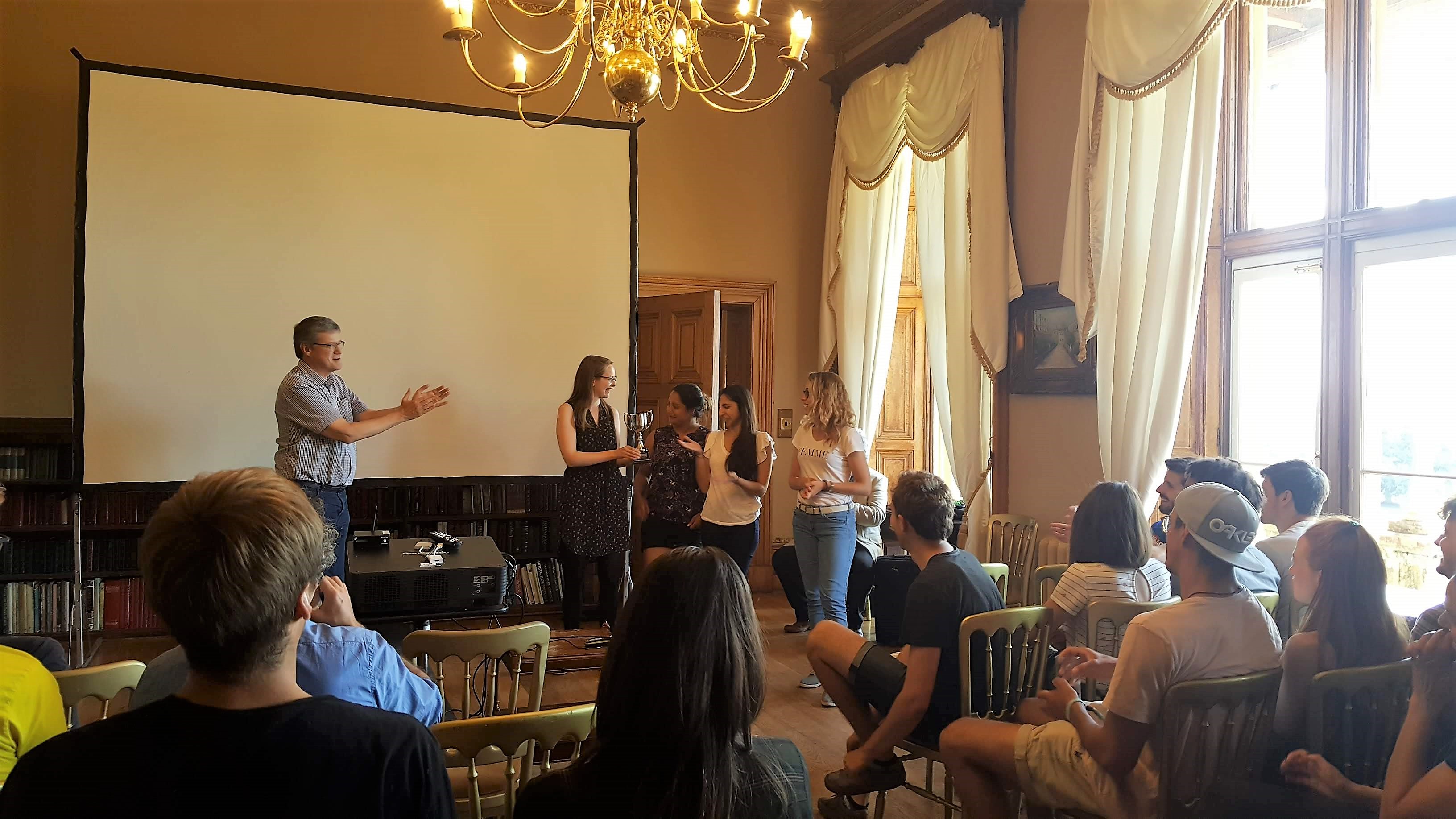
Final thoughts
Zara Visanji, a Student from the Centre for Water Systems at Exeter said, “Overall I would say it was a great week, getting to interact with the other cohorts and learn about other research that is going on. The talks were really fascinating, and it is great to see that water companies are actively trying to work on the same projects and interested in helping the students too. I look forward to see what next year holds.”

Andy Barnes from the WEIR research group and WIRC@Bath said, “This time last year if you would have asked me what I'd be doing in a years’ time I could never have told you I'd be spending a week in a beautiful country house surrounded by like-minded, motivated and ambitious people. After many beverages, free food and some great experiences with some of the smartest, most like-minded people I know I have no reason to complain that I was given the chance to attend such an amazing week.”
After a great week away in Somerset, I would particularly like to thank Marta Szlachta (RIS, Bath) and Debbie Ford (Exeter) for all their hard work and support in the background, Jan Hofman for working up the team challenge, and our invited speakers and site visit hosts at Wessex Water, for making the week such an excellent success.
Dr Tom Arnot, Co-Director EPSRC WISE CDT.
Respond


